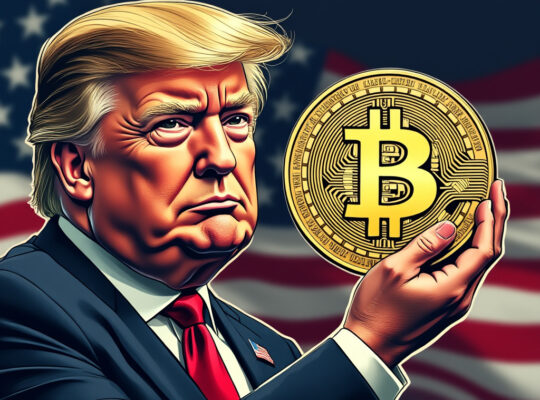As we approach the 2024 presidential election, the stance of candidates on cryptocurrency regulation has become a focal point for tech enthusiasts, investors, and blockchain developers alike. Among these candidates, Kamala Harris, the Democratic nominee, has sparked significant debate within the crypto community due to her past positions and the potential implications of her policies for the cryptocurrency ecosystem.
Historical Context and Regulatory Stance
Kamala Harris’s background as a prosecutor and her tenure as California’s Attorney General, followed by her role in the U.S. Senate, has painted a picture of her as a proponent of strong regulatory measures, particularly in sectors where consumer protection and financial integrity are paramount. This background raises flags for many in the crypto space, known for its ethos of decentralization and often at odds with stringent governmental oversight.
The Biden-Harris Administration’s Impact
Under the Biden-Harris administration, there was what many in the crypto industry referred to as “Operation Choke Point 2.0.” This was not an official policy but rather a perception of regulatory hostility towards crypto, characterized by bank de-risking strategies that made it difficult for crypto companies to maintain banking relationships. While this wasn’t directly attributed to Harris, her role as Vice President during this period suggests at least a tacit approval or lack of intervention in these regulatory overreaches.
Policy Implications for Crypto
Regulation by Enforcement: Critics argue that Harris’s administration might continue or intensify the approach of regulation through enforcement, where innovative blockchain projects are scrutinized heavily without clear regulatory guidelines. This could stifle innovation as companies might avoid the U.S. market due to regulatory uncertainty.
- Consumer Protection vs. Innovation: Harris’s emphasis on consumer and investor protection could lead to regulations that, while well-intentioned, might overcorrect, making it cumbersome for crypto startups to operate. The balance between protecting consumers and fostering innovation is delicate, and there’s concern that her administration might lean too heavily on the side of caution.
- Global Competitiveness: The U.S.’s potential lag in creating a friendly regulatory environment for crypto under Harris could push the industry’s innovation hub towards more favorable jurisdictions like Singapore, Switzerland, or even the UAE. This shift could see the U.S. losing its edge in fintech and blockchain technology.
- Potential for Positive Change: Conversely, some within the community hope that Harris’s pragmatic approach to technology, as hinted in her engagement with tech leaders in Silicon Valley, might lead to a nuanced regulatory framework. Her acknowledgment of the importance of digital currencies in the future economy could mean she might seek to balance regulation with the need for technological advancement.
Market and Community Response
The crypto market, known for its sensitivity to regulatory news, has shown volatility post-Harris’s policy announcements. There’s a palpable fear that overly restrictive regulations could lead to an exodus of crypto businesses, reducing liquidity and investment in the U.S. market. On platforms like X (formerly Twitter), discussions around #CryptoRegulation2024 often highlight these concerns, with users from the crypto twitter community (#CryptoTwitter) expressing a mix of skepticism and cautious optimism.
Conclusion
While Kamala Harris has not explicitly detailed her crypto policies in a way that satisfies the crypto community’s thirst for clarity, her historical positions and the trajectory of her administration’s approach to regulation suggest a potentially challenging environment for cryptocurrencies. For crypto advocates, the hope lies in her campaign’s focus on economic inclusion through technology, which might yet pave the way for a regulatory framework that supports rather than suppresses the burgeoning blockchain industry. However, until more concrete policies are unveiled, the crypto world watches with bated breath, wary of the potential for a regulatory overreach that could set back the clock on digital financial innovation in the United States.












